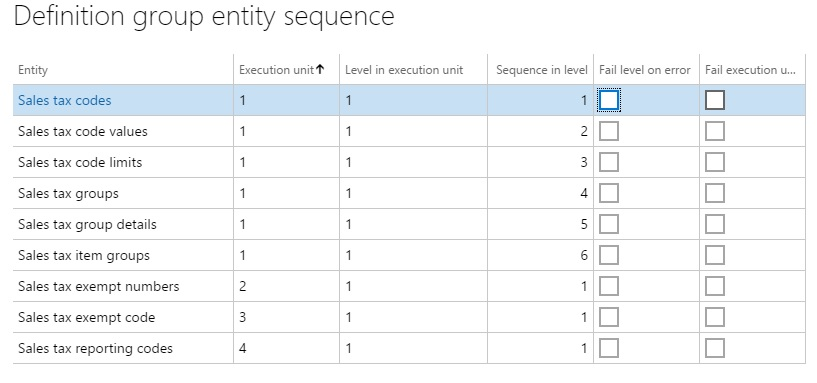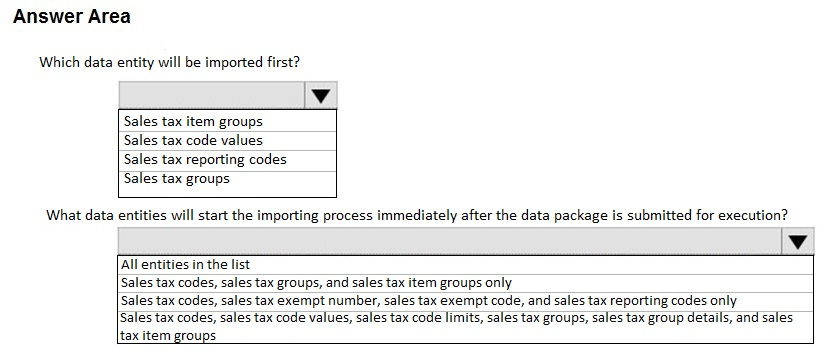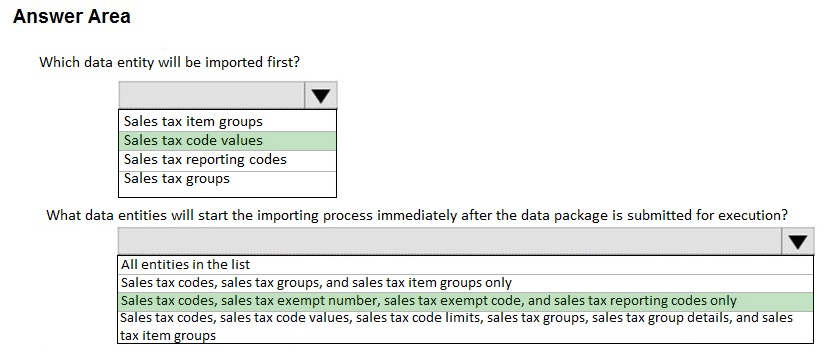

HOTSPOT -
A company sets up a data package to import data by using the data management framework. You have the following data entity sequence.
Use the drop-down menus to select the answer choice that answers each question based on the information presented in the graphic.
NOTE: Each selection is worth one point.
Hot Area:

wveynd
Highly Voted 4 years, 7 months agomalex
4 years, 6 months agoru4dynamics
4 years, 5 months agoad3791
3 years, 8 months agoLeatherskin
Highly Voted 3 years, 10 months agoDemiY
1 year, 10 months agozbiti
Most Recent 1 year, 6 months agohuynq185
2 years, 1 month agoHerrimanCoder
2 years, 3 months agoCP89
3 years, 1 month agoAL09
4 years, 2 months agoNoe
4 years, 3 months agoMansoorAhmad
4 years, 4 months agoQuasarW
4 years, 5 months agoQuasarW
4 years, 5 months agoordMB
4 years, 7 months agomalex
4 years, 6 months ago